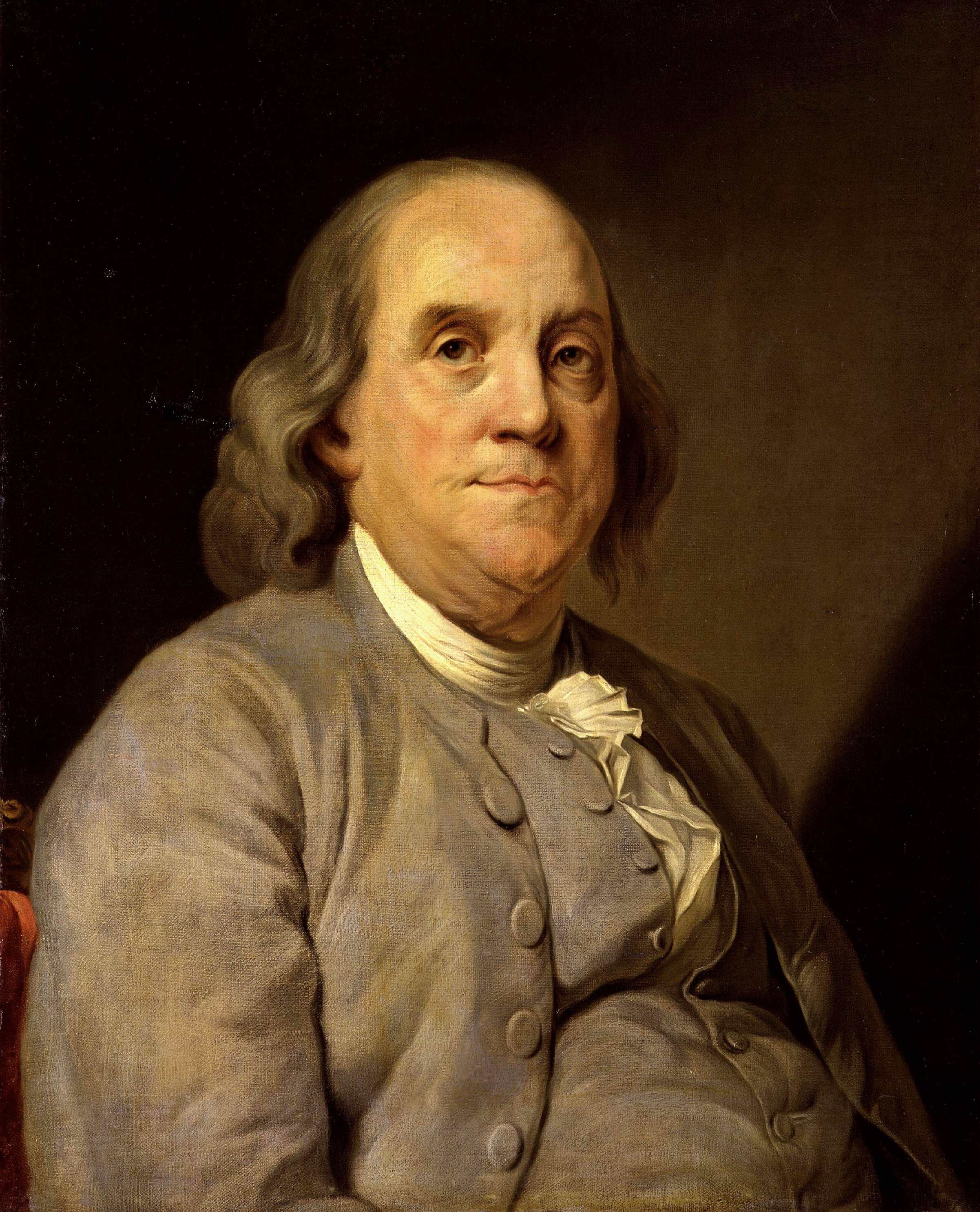...result in a big changes over time.
This is the Vector Principle, or Vector Changes, as my friend Jerry Foster puts it in his book LifeFocus. When we make a small change in our lives, it may seem insignificant at first but as more time passes the change becomes abundantly clear how we are improving the different areas of our lives.
 Benjamin Franklin was also known for hard work to improve himself. Born into poverty with only a couple years of formal education, Franklin rose to become a man of considerable wealth and influence. He was a respected scientist and statesman, a Founding Father of the United States of America. As a young man, Franklin came up with a list of four areas of his life, broken into a set of thirteen virtues of which he would focus on improving one each week. At the end of the thirteen weeks he would start again and build on the changes he had made.
Benjamin Franklin was also known for hard work to improve himself. Born into poverty with only a couple years of formal education, Franklin rose to become a man of considerable wealth and influence. He was a respected scientist and statesman, a Founding Father of the United States of America. As a young man, Franklin came up with a list of four areas of his life, broken into a set of thirteen virtues of which he would focus on improving one each week. At the end of the thirteen weeks he would start again and build on the changes he had made.A lot of us want to eat local/humane/organic/paleo food, exercise the primal way, rely on solar or wind energy and give up the car for a bike. It doesn't have to be all or nothing. Don't give up because you can't or won't sell the house in the city to get a small farm and try the homesteading lifestyle. Don't stop trying if you can't leave the 'burbs behind to forage for berries and live off the land in the wilderness like Grizzly Adams. We can make incremental improvements, the vector changes, to get closer to where we want to be; and the benefits will multiply over time. Plus, the healthy example we show our children, our neighbors, our friends, will be contagious and expand our impact beyond ourselves.
I used to be a big fan of Lucky Charms cereal, much to my wife's dismay. They were mainly oats (right after sugar), so healthy like Cheerios right? And the marshmallows (or styrofoamy knock-offs) were delicious... over time my breakfast choices have changed for the better. This weekend she surprised me with a box of Mom's Best cereals Mallow Oats. Oh great, generic or greenwashed Lucky Charms other men might have thought ;) but these are the real deal. Delicious marshmallows that don't stick to your teeth, ingredients you can pronounce and count on your fingers, no high fructose corn syrup, artificial flavors or colors (colored with blueberry and carrot concentrates). So if you are just beginning a healthier, more sustainable (made with wind energy) stage of life, your kids might appreciate this baby step.
For more chemical free food consider the Environmental Working Group's Dirty Dozen foods list. Apples top the list at #1 for residual pesticides, followed by Strawberries in the number two spot.
- Apples
- Strawberries
- Grapes
- Celery
- Peaches
- Spinach
- Sweet Bell Peppers
- Nectarines (Imported)
- Cucumbers
- Cherry Tomatoes
- Snap Peas (Imported)
- Potatoes
A lot of these fruits and vegetables can be grown right here in central Iowa. You can look for these locally and I encourage you to get to know your producer, too. By getting to know them you build community as well and gain insight in their growing practices. Many small local growers look for more natural pesticide-free ways to grow, even if they aren't certified USDA Organic. Their growing practices may even exceed these standards.
An even better vector change is growing your own, going hyper-local. Many, like apples, strawberries and peaches, are perennial so that they will produce for you year after year without replanting. Others such as spinach, cucumbers and peppers, are easily grown from seed in a small garden or raised bed. Position this near your kitchen or back door and all you have to do is step out for fresh greens or vegetables. While your at it, why not put in a few hardy, flavorful and healthy herbs, as well.
I would welcome the opportunity to help you make this happen. Contact me and we can talk about a basic garden installation or more including fruit trees, berry patches and edible oases.
Thanks for checking in!


Love the info!
ReplyDelete